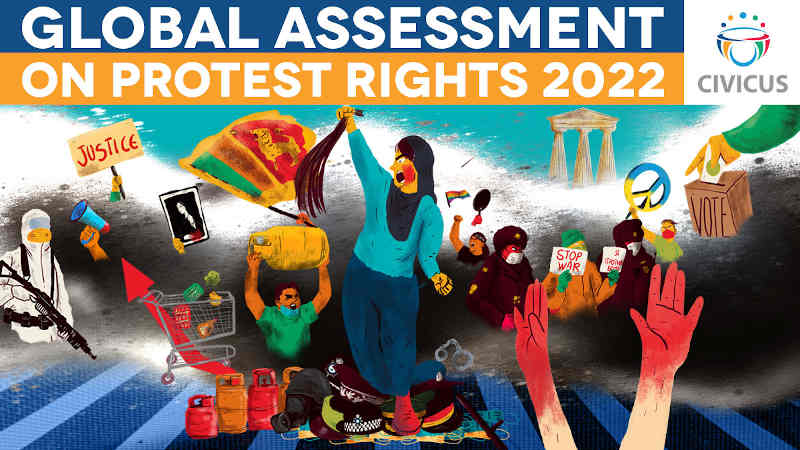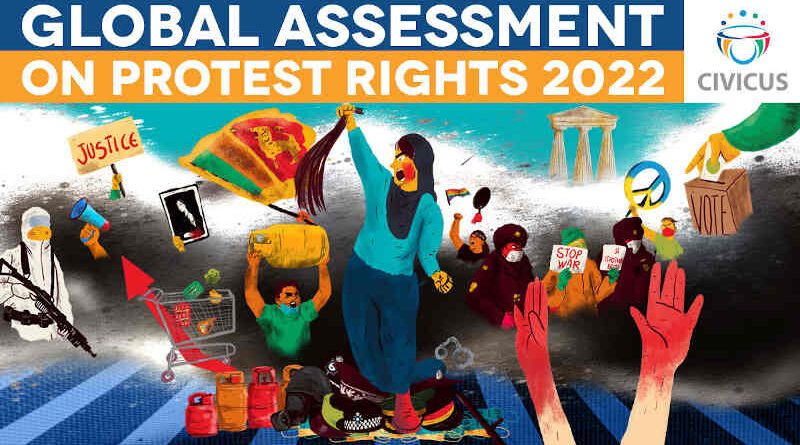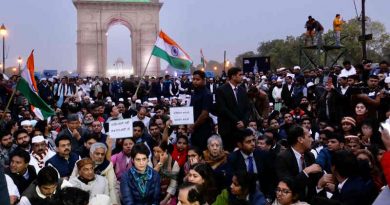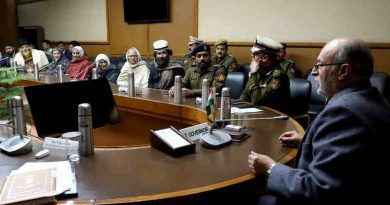CIVICUS Monitor Shows Unlawful Killing of Protesters in 24 Countries

CIVICUS Monitor Shows Unlawful Killing of Protesters in 24 Countries
The research documents a timeline of frequent violations that take place before, during and after protests.
From Iran to Italy, people have taken to the streets to demand political and social change and a range of restrictions face protesters and activists, finds a new global assessment by the CIVICUS Monitor, an online research platform that tracks fundamental freedoms in 197 countries and territories.
The 2022 Global Assessment on Protest Rights, shows that violations to protest rights, as covered by international law, occur in over 75% of countries where protests have been recorded. The CIVICUS Monitor data shows that restrictions to freedom of peaceful assembly have occurred in at least 100 countries from October 2021-September 2022.
The research documents a timeline of frequent violations that take place before, during and after protests. In numerous countries, restrictive laws or emergency regulations have been deployed to make it difficult for people to protest, including the need for permits and levying fees. Authorities have also used outright bans to prevent protests from happening, often using grounds such as disturbing public order, security concerns, or public health reasons.
The detention of protesters is the most prevalent violation. Those exercising their fundamental freedoms have been detained in at least 92 countries over the past year. The detention periods can range from hours to indefinite. Peaceful protesters against the war in Ukraine, the solidarity for women’s rights in Iran and activists in Sri Lanka demanding a change of government, have all faced lengthy stays in detention.
Excessive force has also been a recurring theme of this year’s protests. Demonstrators have been met with water-cannons, batons, tear-gas and other acts of brute-force in over 40% of the countries recording protests. Police violence at protests has been the most prevalent in the Americas and the Asia-Pacific.
Most disturbing of all has been the unlawful killing of protesters, which has occurred in at least 24 countries. From Myanmar to the United States, protesters have died during protests. In too few of the countries, have independent investigations been conducted by the authorities and the perpetrators of the killings held accountable.
“In most regions this year, the story on protest rights is bleak. At a time when civic rights are needed more than ever to hold governments accountable, the space to protest is being heavily restricted. We need governments to respect the right to peaceful assembly, investigate abuses by security forces and work closely with civil society moving forward to halt this downward spiral and push back against the authoritarian forces at work,” said Julieta Zurbrigg, Research Advisor, CIVICUS Monitor.
Over twenty organizations collaborate on the CIVICUS Monitor, an online platform, which tracks restrictions to civic freedoms across the globe. The research coalition tracks a total of 33 different restrictions related to freedom of association, freedom of expression and freedom of peaceful assembly. The data also provides the basis for national civic space ratings, countries can be categorized as either closed, repressed, obstructed, narrowed or open.





